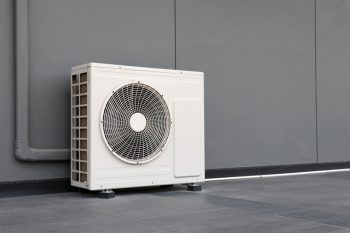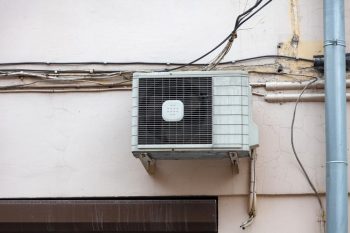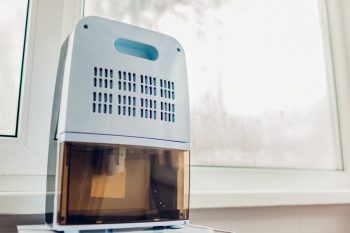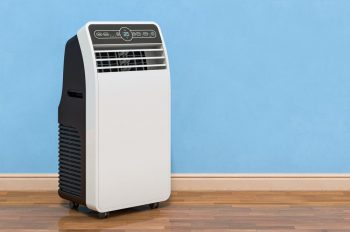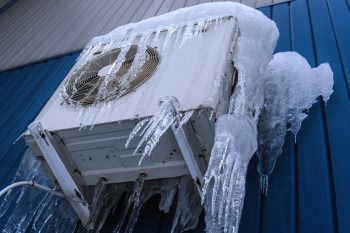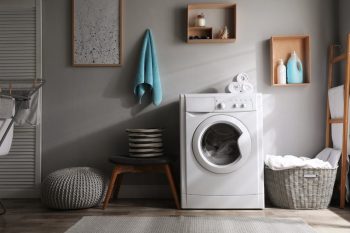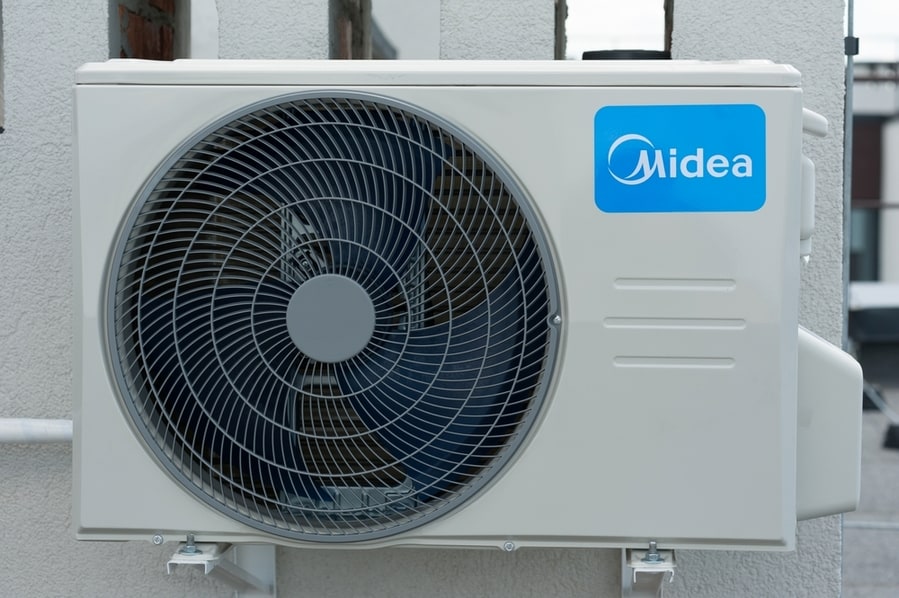
When you turn on your Midea AC, it should run for about 20 minutes or more before it turns off for a few minutes.
However, when you notice your Midea AC often turns off in about 10 minutes or less, it’s a sign that something is wrong. So why does Midea AC turn off in less time than it should?
Typically, your Midea AC turns off and on by itself because of short cycling. Short cycling happens when the cooling cycle is shorter than usual as a result of issues in several parts of your AC unit, such as:
- Faulty thermostat
- Dirty air filter
- Clogged evaporator coil
- Condenser issues
- Low refrigerant level
- Faulty capacitor
- Electrical problem
- Oversized home unit
The main reason your Midea AC gives you issues is most likely because of poor maintenance service.
This article will elaborate on the top 8 reasons your Midea AC turns off. Also, we will talk about how you can mitigate these issues for a smooth AC operation.
8 Reasons Your Midea AC Turns Off Itself
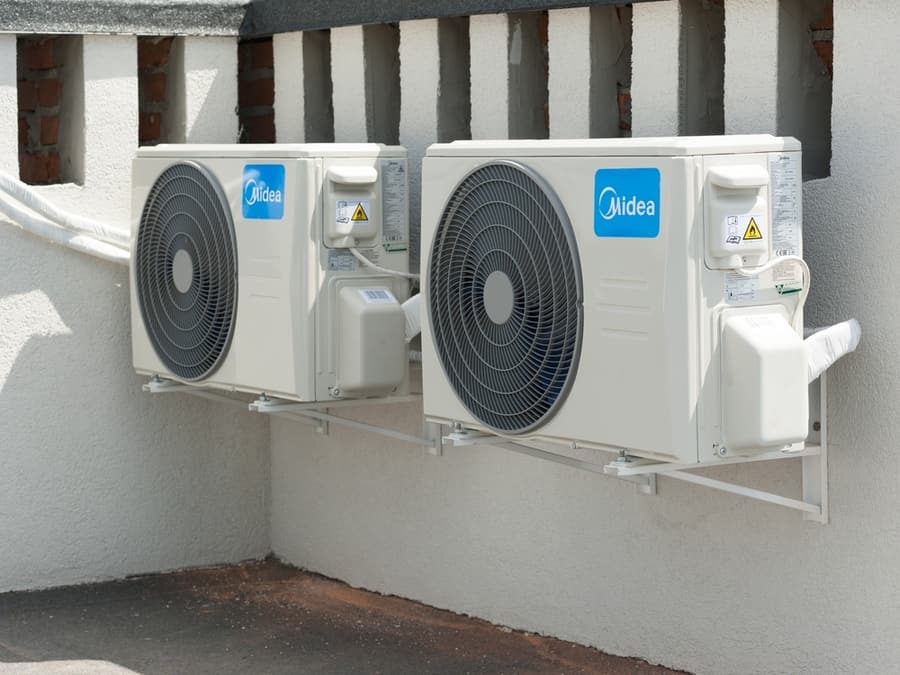
Before we get into why you’re having issues with your Midea AC, let’s talk briefly about short cycling. What is short cycling? Is it normal? If not, can it damage my AC unit?
These questions are what any Midea AC owner might have when their unit is malfunctioning.
When short cycles arise, it causes your AC unit to power down sooner than it should. Also, it is worth noting that short cycling is different from the normal thermostat function of your unit.
This issue can diminish your system’s lifespan if nothing is done to correct it.
1. Faulty Thermostat
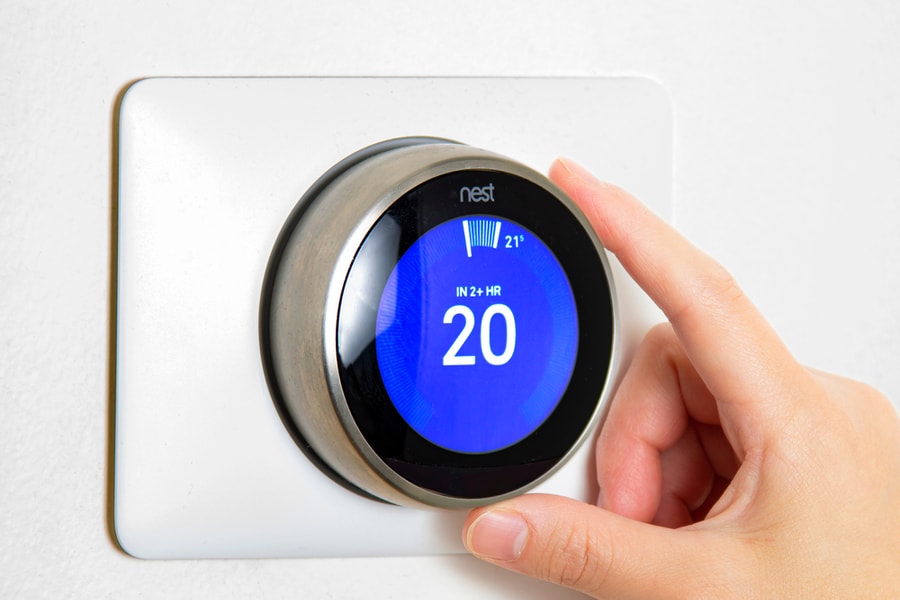
One of the reasons you experience this issue on your Midea AC is largely due to a faulty thermostat. Although the thermostat works incredibly to elongate the AC’s lifespan, it is not immune to issues.
When the thermostat is faulty, the AC won’t reach a set temperature before turning off. The thermostat can malfunction due to bad wiring, electrical, water damage, low battery, etc.
In such cases, it causes the coil cycle to shut down prematurely. If you have a malfunctioning thermostat, you must inspect it with a multimeter and replace it if necessary.
2. Dirty Air Filter
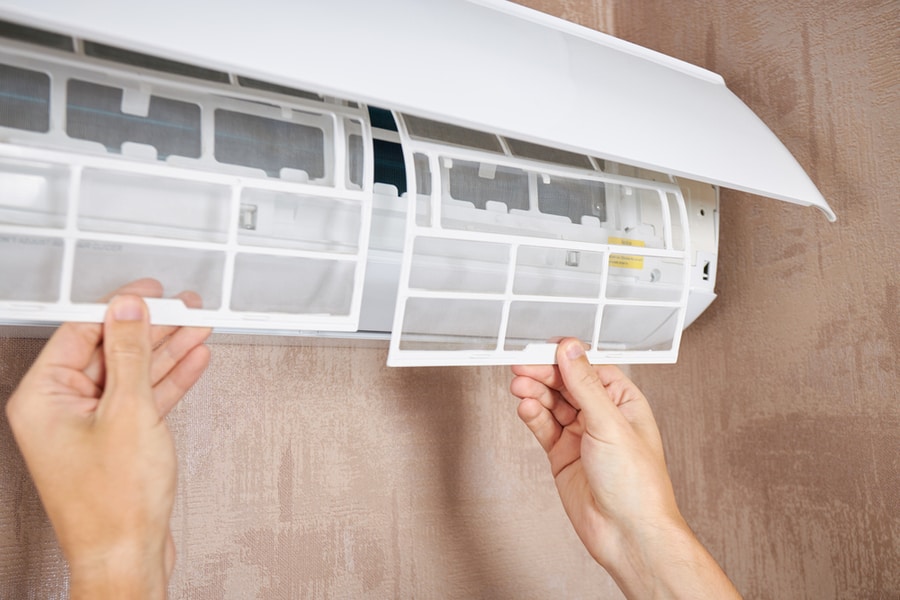
Another common issue that may arise causing your Midea’s AC to short cycle may be due to a clogged air filter. The air filter should be cleaned at least once every month or two during its working period.
When the air filter becomes clogged, it no longer filters the air that goes into the system properly if any airflow gets to the unit. As a result of the restricted airflow that gets to the unit, the compressor shuts off due to increased pressure.
Note that this shutdown is a safety mechanism the AC unit uses to protect its component from damage from excessive heat.
So, if you last cleaned the air filter a while ago and are experiencing frequent stops on your Midea unit, you should check it out. Better still, replace it, and ensure it is MERV-13 rated.
3. A Clogged Evaporator Coil
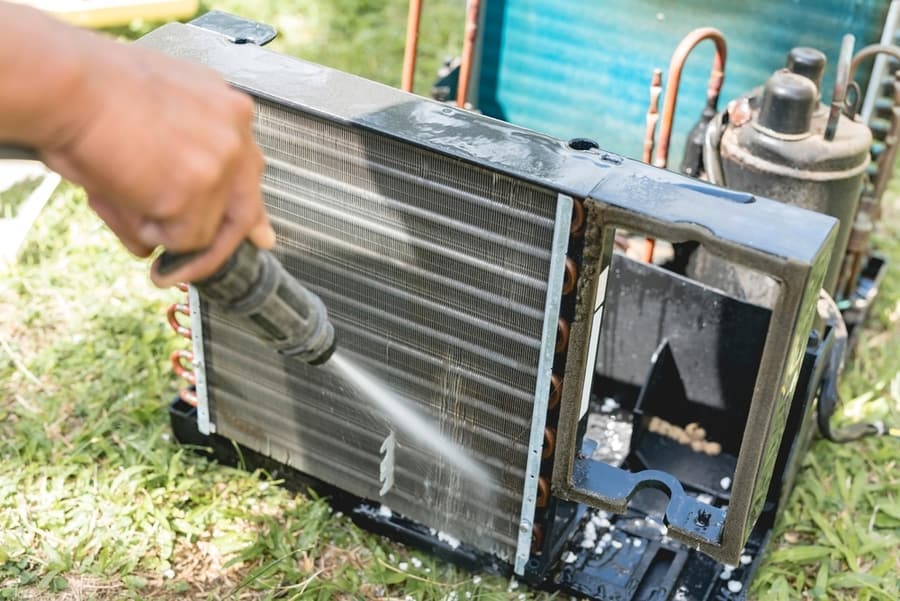
Your Midea AC unit comes with an evaporator coil whose main job is to cool the refrigerant so it absorbs more heat from the surrounding.
As the fan blows on the coil, the refrigerant loses the heat it absorbs, turning it into a vaporous state. And as you can imagine, when the evaporator coil is clogged, this heat dispersion will not occur.
However, you may be curious about what may clog the evaporator coil. Commonly, the evaporator coil may freeze up, restricting or halting refrigerant flow through the coil or copper pipes.
Other times it could be due to dust or debris building up in the coil that may clog the evaporator coil. Whatever the case, when refrigerant no longer flows through the coil as it should, it causes overheating, which trips off the AC unit, failing to cycle on and off as it should.
4. Condenser Issues
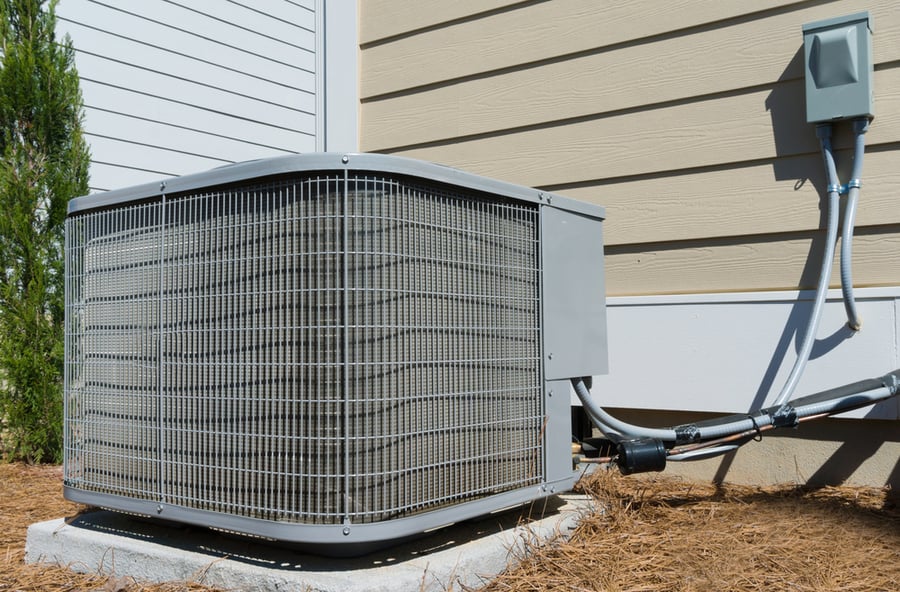
The condenser coil of your Midea AC is placed inside the outdoor unit, and its function is to process the refrigerant from its gaseous state to liquid form.
This process completion is fully dependent on the compressor as it helps to increase the pressure of the gas. However, if the condenser develops issues such as getting clogged with dirt or the cylinder getting squeezed, it impacts its effectiveness, impeding refrigerant flow.
As such, the refrigerant doesn’t get converted, heat builds up, and the unit is shut down to protect its component from heat damage.
5. Low Refrigerant Level
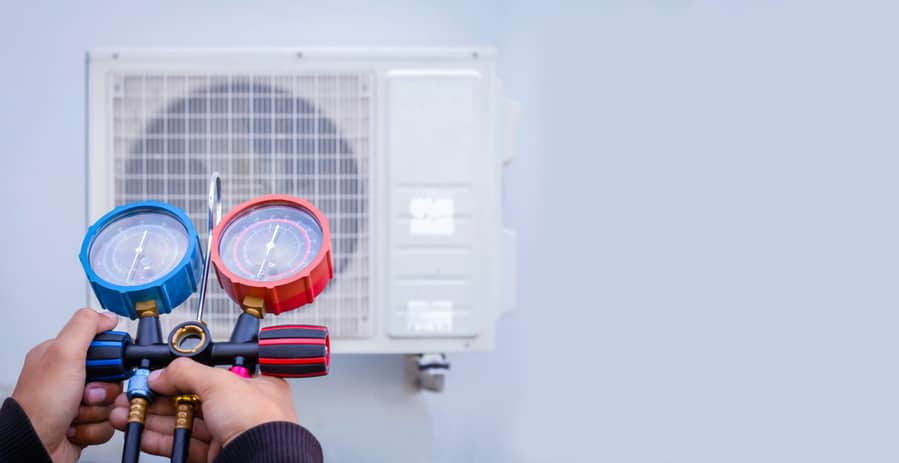
Refrigerant has a critical function in the cooling cycle of any AC unit. The refrigerant takes the heat from your home and expels it outside.
If the refrigerant is low, the Midea AC will take much longer to cool your home and experience frequent short operating cycles.
If you suspect the refrigerant of your Midea AC has leaked, you should contact a technician. Also, you should ensure that only certified technicians handle refrigerant-related maintenance and service on your AC unit.
Refrigerants are profoundly harmful to health when exposed to them for a prolonged period, plus it depletes the ozone layer and is risky for the earth.
6. Faulty Capacitor
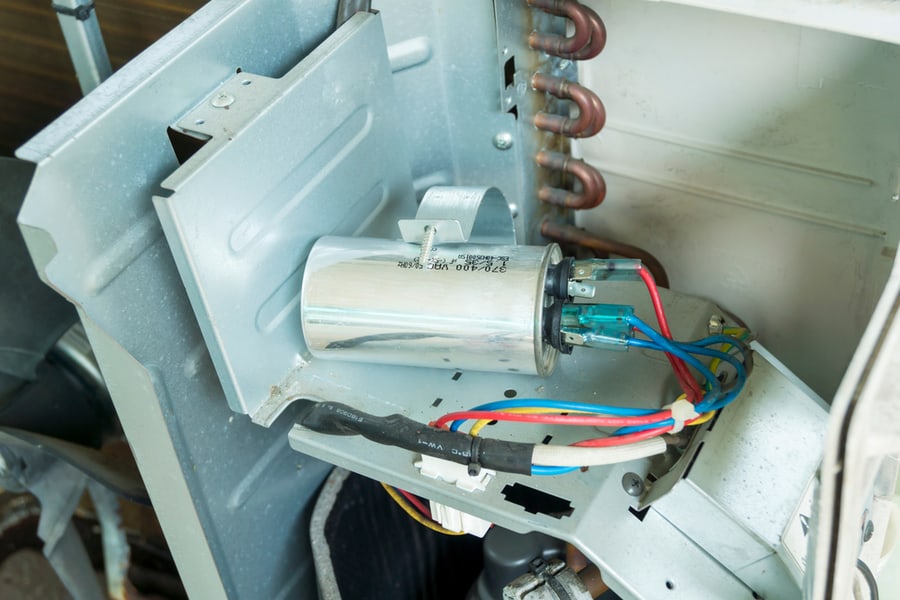
If your Midea AC keeps turning off when it shouldn’t, it could be because something isn’t right with your capacitor. This is because the fundamental part of the functioning of your AC unit, as well as most electro-mechanical machines, is due to capacitors.
The capacitor is attached to three essential engines in your Midea AC─ compressor, blower, and open-air fan engines.
So, when the capacitor is faulty, it can halt the AC for a long time to begin when you turn it on. Likewise, the capacitor makes a discernible clicking commotion.
Also, a faulty capacitor may increase the vitality of your electrical bill. Assessing your AC unit to know the capacitor is quite complex. A specialist will often be in the best position to inspect the capacitor to know whether there is apparent damage in your situation.
7. Electrical Problems
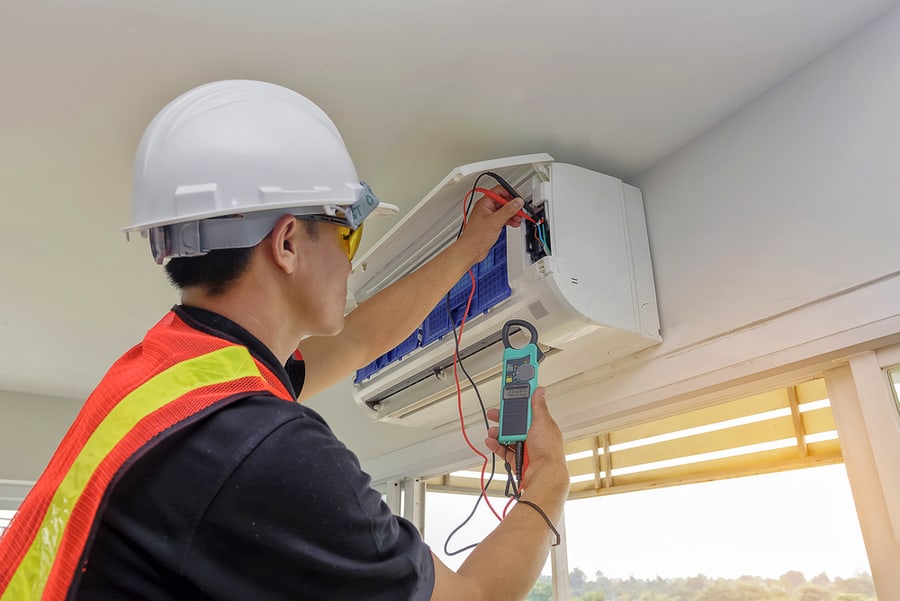
Many electrical problems around your home can be responsible for the Midea AC unit tripping off periodically. Short circuits, in particular, are notorious for causing the AC to turn off, which can cause more damage to the unit if not checked and fixed.
Other wiring issues related to loose or broken wiring, inappropriate connection, and so on can cause problems with your AC unit. Verify the wiring of your AC unit is intact when experiencing frequent trip-offs using a multimeter.
The multimeter test for continuity helps you pinpoint the exact line causing issues on your unit if there is one. If a faulty electrical line is a culprit, replace it if you can, or call an expert electrician.
8. The Unit Is Oversized for Your Home
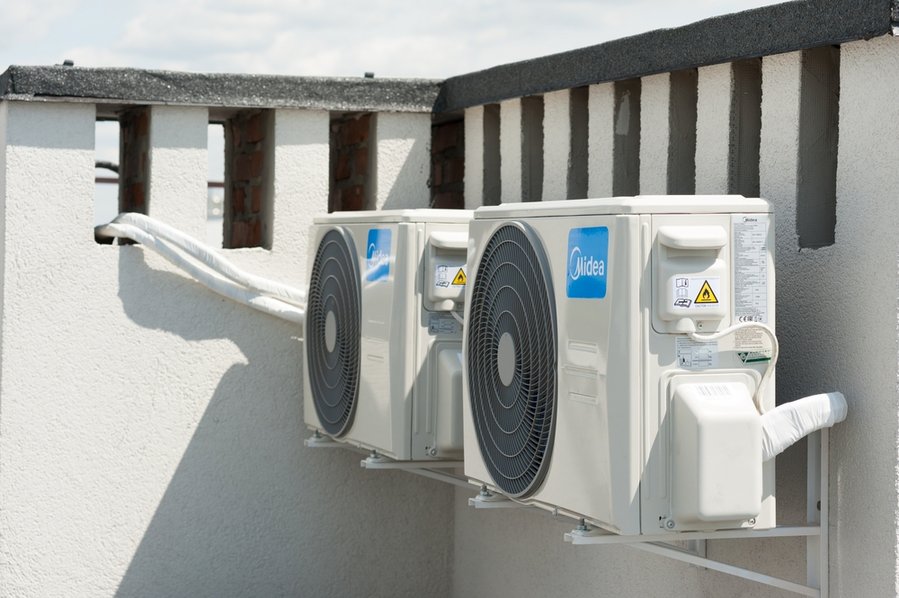
Another issue that may cause your Midea AC to turn off frequently may be the fact that the unit is oversized for your home.
But for the AC to work effectively for your space, it must run normal length cycles. So when the AC continually stops, it wouldn’t run long enough to cool the warm air in your home.
More so, an oversized AC will attract more power when they fire up, which will raise your utility bills. So, when shopping for an AC, always consult the expert at the shop to ensure you get the right size for your space.
Tell them about your space’s length, breadth, and height, and they will advise you on the best size of AC to get.
Summary
Your AC’s normal cycle lasts about 20 minutes before it shuts off periodically. But something is faulty when the normal cycle is way shorter than it should be, and the AC stays off longer than it should before it fires on again.
As we elaborated in this article, many things may be wrong with your AC. Inspect your Midea AC to know what’s wrong, and when you feel lost, contact an expert.
Frequently Asked Questions
Can I Adjust the Timer Before My Midea AC Shuts-Off?
Some Midea AC thermostats have a timer setting, particularly those with an Energy Star rating. With this timer, you can set how often the AC automatically kills the system occasionally.
What Are the Effects of Short Cycling on Midea AC?
It’s possible for your Midea AC to short cycle for weeks or months before you notice it. However, its cumulative effect includes increased humidity, high energy bills, wear, and tear, amongst others.

